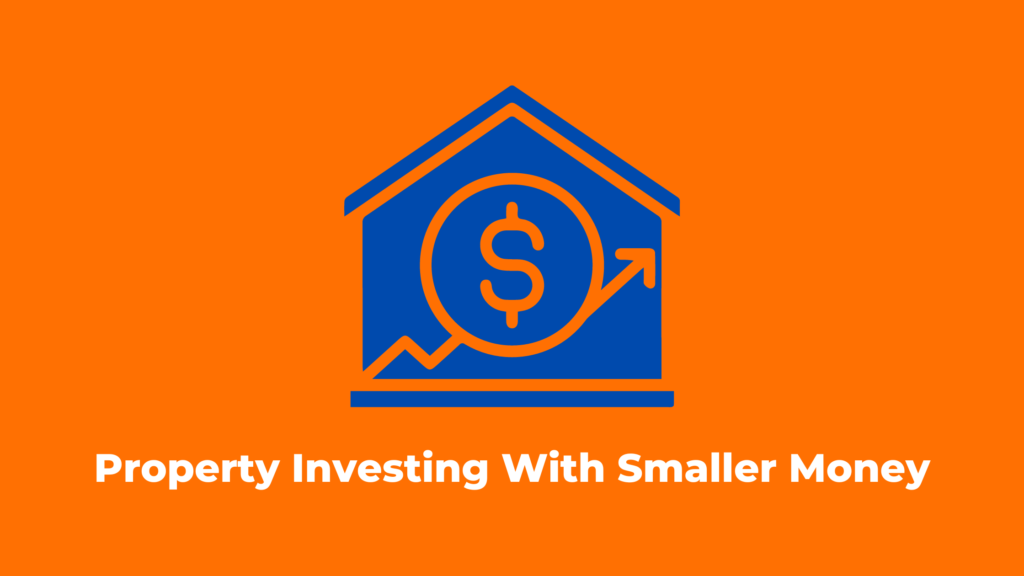If you’re looking to invest in property but don’t have a lot of money to start with, here are a few tips to help get you started. First, try to find a fixer-upper that you can buy for cheap, and then put some work into fixing it up yourself. This will help you save on labor costs. Second, don’t be afraid to negotiate with sellers. You may be able to get a lower price if you’re willing to pay cash upfront.
Why invest in property?
When it comes to investing, there are many options to choose from. Some people invest in stocks, others in bonds, and still others in mutual funds. But one investment that is often overlooked is property.
There are many reasons to invest in property. You can see and touch your property, unlike stocks or bonds, which are intangible assets. Second, the property is a long-term investment. It appreciates over time, and you can live in it or rent it out for income. Third, the property is a relatively safe investment. The risks are lower than with other types of investments, such as stocks or mutual funds.
If you are looking for a solid investment that will appreciate over time and provide you with income and security, then investing in property is a good option to consider.
Property investing with little money: what are the options?
If you want to invest in property but don’t have a lot of money, there are still options available to you. You can look into fixer-upper properties, for example, which can be bought for relatively low prices. There are also a number of financing options available that can help you get the money you need to buy a property. Talk to a financial advisor to learn more about your options and find out what might work best for you.
Why smaller money can still be good for property investing
It’s no secret that in order to make money in property investing, you need to have a good amount of money to start with. However, that doesn’t mean that smaller investments can’t be profitable. Here are a few reasons why investing with less money can still be a good idea:
1. Smaller investments are less risky.
If you’re investing a large sum of money into a property, you’re also risking a lot more if something goes wrong. With a smaller investment, you’re not putting as much at risk if the investment doesn’t work out.
2. You can learn as you go.
When you’re starting out with small investments, you can learn from your mistakes without losing too much money. This way, when you do invest larger sums of money, you’ll be more likely to make wise decisions and see a return on your investment.
3 tips for finding good deals
In today’s economy, it’s tough to find good deals on investments. However, with a little bit of creativity and resourcefulness, you can find opportunities to invest in property even if you have very little money.
Here are three tips to help you get started:
- Look for “fixer-uppers.” With some elbow grease and a limited budget, you can often turn these types of properties into profitable investments.
- Be inventive with your financing. There are a number of financing options available for investors, even if they don’t have a lot of money to put down.
- Research the market carefully. Knowing what properties are selling for in your area can help you make smart investment decisions – even if you’re working with limited funds.
Why you should consider fixer-uppers
If you’re looking to invest in property but don’t have a lot of money to spend, you should consider fixer-uppers. With a little elbow grease and a tight budget, you can turn these properties into diamonds in the rough.
Here are three reasons why fixer-uppers are a great investment:
1. You can get more bang for your buck.
2. You can customize the property to your taste.
3. You can build equity quickly.
So if you’re ready to roll up your sleeves and get to work, a fixer-upper may be the perfect investment for you.
4 more tips for making small investments work
If you’re looking to invest in property but don’t have a lot of money to put down, there are still options available to you. Here are more tips to help make your small investment work:
- Consider teaming up with another investor. This can help you pool resources and increase your buying power.
- Look for properties that need some work but have good potential. By renovating or making improvements, you can add value and increase your return on investment.
- Don’t be afraid to negotiate. In many cases, sellers are willing to accept a lower offer if it means they can avoid the hassle of repairs or renovations themselves.
- With a little creativity and effort, investing in property with limited funds is definitely possible. By following these tips, you can increase your chances of success and potentially make a great return on your investment.
What is equity and how can it be used for property investment
Equity is the portion of a property’s value that the owner actually owns. The rest is owned by the lender (if there is one). Equity can be used for investment purposes in a number of ways.
For example, an investor might use equity to buy another property or to improve an existing property. Equity can also be used as collateral for a loan.
An investor who owns a property outright has 100% equity in it. If the property is worth $200,000 and the owner owes $100,000 on it, the owner has 50% equity in the property.
Equity can be a helpful tool for investors who are looking to grow their portfolio or access capital for improvements. By using equity, investors can leverage their existing assets to make more money.
The benefits of using equity for property investment
When it comes to property investment, using equity can be a great way to get started. Equity is the portion of your home’s value that you own outright. For example, if your home is worth $200,000 and you have a mortgage for $100,000, then your equity is $100,000.
There are several benefits to using equity for property investment. First of all, it can help you to buy a property without having to come up with a large down payment. Additionally, the interest rates on loans for investment properties are often lower than the rates on other types of loans. Finally, using equity can help you to avoid some of the fees associated with traditional mortgages.
If you’re thinking about using equity for property investment, be sure to talk to a financial advisor first.
The risks of using equity for property investment
When it comes to property investment, using equity can be a great way to get started. However, there are some risks involved that need to be considered before taking this step.
For starters, if the property market were to crash, you could end up owing a lot of money to the bank. This is because you would still need to pay back the loan, even if the value of your property has decreased.
Another risk to consider is that you may not have enough equity in your home to cover the entire purchase price of the investment property. This could lead to having to take out a second mortgage or even selling your home in order to come up with the rest of the money.
Lastly, you need to make sure that you are comfortable with the idea of using your home as collateral for an investment.
The pros and cons of each option
When it comes to investing in property, there are a few different options available. Each option has its own set of pros and cons that be considered before making an action or decision.
A rental real estate investment is one option. The main advantage of this is that you can generate income from rent payments. There are some disadvantages to this option, however. For example, you will be responsible for maintaining the property and dealing with tenants.
An additional choice is to purchase a property that needs work. The benefit of this is that you can buy the property at a lower price and then sell it for a profit after completing the renovations. As it can be difficult to estimate the cost of repairs and there is no guarantee that you will be able to, this option does involve some risks in selling the property for a greater cost than you paid.
Conclusion: The simplest way to start with little money
If you’re looking to invest in property but don’t have a lot of money to start with, there are a few things you can do to get started.
Looking for properties that require considerable yet are sold below market rate is one option. This can be a good way to get started because you can use the equity you build up in the property to buy more properties or invest in other ways.
Another option is to focus on smaller properties or even just a single room in a larger property. You can then rent out this space and use the income to help cover your mortgage payments and other expenses.
Whatever route you decide to take, remember that it’s important to do your research and talk to a financial advisor before making any decisions. With careful planning and execution, investing in property with small amounts of money is possible.

Pardeep is the founder and editor of Small Investment Ideas. He believes that everyone can change their life with the help of small investments and achieve financial freedom.


